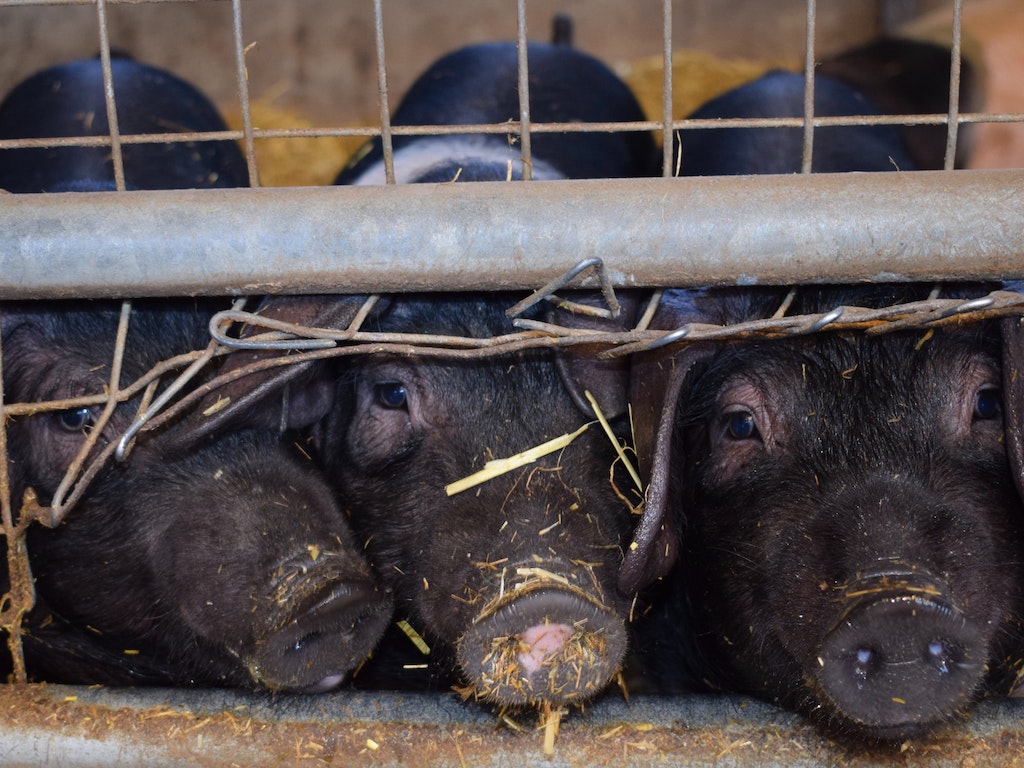4 Mins Read
A new report published by nonprofit the World Animal Protection (WAP) is warning of the threat of superbugs emerging on factory farms due to antibiotic overuse. Describing the threat as a “real and present danger” to global public health, the report calls for an end to intensive factory farming and for consumers to make deliberate choices to reduce their meat consumption and opt for plant-based meat alternatives.
In a new report, experts at WAP say that intensive animal agriculture is likely to be a major driver of future pandemic outbreaks and is posing the rising threat of superbug emergence. With almost 75% of the world’s antibiotics currently used on animals to “prop up low-welfare practices such as the raising of fast-growing meat chickens,” the industry is described as a “risky business” that must be eradicated in order to prevent another health disaster like the current Covid-19 crisis, which has resulted in more than 1 million deaths, upended economies and shut down jobs, education and everyday lives of people around the world.
“If the pandemic is the flash flood that has taken us by surprise, the superbug crisis is the only too predictable slow rising tide,” said Jacqueline Mills, head of farming at WAP.
“We can’t ignore the contribution that the overuse of antibiotics in factory farming is having on the rise in antibiotic resistance – it is a ticking time-bomb that could make the current public health crisis even worse if antibiotics are ineffective in treating secondary infections.”
The report cites worrying figures that already, 700,000 people die annually from infections than cannot be treated by antibiotics – a statistic that is set to rise to 10 million people each year by 2050 if we do not take action to put an end to factory farms that are keeping thousands of animals in close confinement, a leading cause driving the “shadow crisis” of superbugs.

We can’t ignore the contribution that the overuse of antibiotics in factory farming is having on the rise in antibiotic resistance – it is a ticking time-bomb that could make the current public health crisis even worse if antibiotics are ineffective in treating secondary infections.
Jacqueline Mills, Head of Farming at WAP
The overuse of antibiotics is a widespread industry practice as animals are cramped together, subjected to mutilations and stress, which presents an ideal breeding ground for diseases. Previously, a U.N. report has emphasised the role of animal agricultural intensification due to growing meat demand as a leading cause of emerging zoonotic pandemics, stating that it is responsible for more than 50% of infectious diseases since the 1940s.
Beyond fuelling the rise of superbugs, the WAP report highlights that residues from antibiotic use are also contaminating waterways and causing environmental harm, on top of the already carbon-intensive activities of raising livestock for food.
“Industrial animal farming is tearing down our forests, polluting our water, warming the planet and harming our health,” explained Monique Mikhail, senior strategist at Greenpeace International.
Among some of the key policy recommendations the report outlines includes introducing stricter regulations for the meat industry, and incentivising a shift away from intensive animal farming towards high-welfare animal production and an overall reduction in the consumption and production of animal-based products.

We must end industrial animal farming and its unacceptable dependence on antibiotics, drastically reduce how much meat we produce and eat, and transition to a just and ecological food system.
Monique Mikhail, Senior Strategist at Greenpeace International
“Governments need to lift animal welfare standards, and monitor and report on antibiotic use in farm animals and international fast-food restaurants should be setting the bar far higher to ensure the animals in their supply chains are treated well, and antibiotics are used responsibly in farming,” said Mills.
A survey was also conducted by WAP to examine the level of awareness about the superbug threat from factory farming and indicated that across 15 countries globally, 88% of people are now “deeply concerned” that the next pandemic would arise from farmed animals. WAP says that in order to reduce the risk and take action, consumers can actively reduce their meat intake and explore plant-based options, which are not only safer and cruelty-free, but are more sustainable as they do not require as many resources or carbon emissions compared to their animal counterparts.
“We must end industrial animal farming and its unacceptable dependence on antibiotics, drastically reduce how much meat we produce and eat, and transition to a just and ecological food system,” said Mikhail.
Lead image courtesy of Unsplash.




